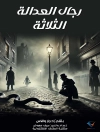If you had a time machine for when would you go?
To travel through time as if it were a highway is an ancient dream of mankind. The first stories of time travelers go back to the beginning of civilizations, being found in Hindu, Jewish and Japanese mythologies.
But it was with science fiction that the concept became popular and began to inhabit the dreams of all of us. In this book you will find seven classics of time travel specially selected by the critic August Nemo.
For more books with thought-provoking themes, be sure to check out the other volumes of this series!
***
This book contains:
– Rip Van Winkle by Washington Irving.
– The Clock That Went Backward by Edward Page Mitchell.
– The Chronic Argonauts by H. G. Wells.
– Lost in Time by Arthur Leo Zagat.
– The Queer Story of Brownlow’s Newspaper by H. G. Wells.
– The Gap in the Curtain by John Buchan.
– A Dream of John Ball by William Morris.
Circa l’autore
Washington Irving was an American short story writer, essayist, biographer, historian, and diplomat of the early 19th century. Irving was one of the first American writers to earn acclaim in Europe, and he encouraged other American authors such as Nathaniel Hawthorne, Henry Wadsworth Longfellow, Herman Melville, and Edgar Allan Poe. He was also admired by some British writers, including Lord Byron, Thomas Campbell, Charles Dickens, Francis Jeffrey, and Walter Scott.
Edward Page Mitchell was an American editorial and short story writer for The Sun, a daily newspaper in New York City. He became that newspaper’s editor in 1897, succeeding Charles Anderson Dana. Mitchell was recognized as a major figure in the early development of the science fiction genre.
Herbert George Wells was an English writer. He was prolific in many genres, writing dozens of novels, short stories, and works of social commentary, history, satire, biography, and autobiography, and even including two books on recreational war games. He is now best remembered for his science fiction novels and is often called the ‘father of science fiction’, along with Jules Verne and Hugo Gernsback. Wells was nominated for the Nobel Prize in Literature four times.
Arthur Leo Zagat was an American lawyer and writer of pulp fiction and science fiction. Trained in the law, he gave it up to write professionally. Zagat was a graduate of City College who served in the US military in Europe during World War I.
William Morris was a British textile designer, poet, novelist, translator, and socialist activist associated with the British Arts and Crafts Movement. He was a major contributor to the revival of traditional British textile arts and methods of production. His literary contributions helped to establish the modern fantasy genre, while he played a significant role propagating the early socialist movement in Britain. Morris is recognised as one of the most significant cultural figures of Victorian Britain.
John Buchan was a Scottish novelist, historian, and Unionist politician who served as Governor General of Canada, the 15th since Canadian Confederation. After a brief legal career, Buchan simultaneously began his writing career and his political and diplomatic careers, serving as a private secretary to the administrator of various colonies in southern Africa. Buchan was enthusiastic about literacy and the development of Canadian culture, and he received a state funeral in Canada before his ashes were returned to the United Kingdom.












